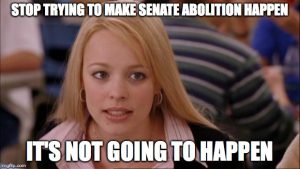The prime minister present today, as was his deputy, for one of the few remaining times this spring. All of the other leaders were present as well today. Pierre Poilievre led off in French, and worried that the prime minister’s watch has seen the wealthiest double their incomes while youth can’t afford a home. Justin Trudeau said that they are rising the capital gains exemption in order to fund the housing and programmes that younger people need. Poilievre insisted that Trudeau’s own numbers show that the wealthy got wealthier, and that his tax increases only punish the poor and middle class. Trudeau insisted that this was just the Conservatives going to bat for the wealthy. Poilievre switched to English to repeat his first question, and got much the same reply from Trudeau, who added that if it didn’t have real-world impacts, it would be funny to watch the Conservatives tie themselves into rhetorical knots. Poilievre railed that everyone was paying higher taxes thanks to Trudeau, linking the carbon levy in that, and Trudeau trotted out the lines about the carbon rebates, and helping people who need it. Poilievre trotted out an illiterate and innumerate line about the capital gains changes, getting it completely wrong, and Trudeau took this as an opportunity to take shots at the Conservatives choosing to vote against youth and the Middle Class™.
Yves-François Blanchet led for the Bloc, read a headline about the RCMP saying they don’t have the legislative tools to fight hate speech, and demanded support for their bill to remove the religious exemption from hate speech. Trudeau listed measures they have taken, such as the Online Harms bill and the legislation to criminalise Holocaust denial. Blanchet considered this wasted breath, and raised rhetoric being shouted on the streets of Montreal, to which Trudeau insisted they were trying to fight hate speech and calls for violence.
Jagmeet Singh rose for the NDP and clumsily insisted that the government did nothing on taxing the wealthy for eight years, to which Trudeau reminded him that the first thing they did in office was raise taxes on the one percent and lower it on the Middle Class™, and that the NDP voted against that. Singh repeated the question in French, and got the same answer.
Mugging for social media clips in #QP: https://t.co/eNDMBBV9lZ
— Dale Smith (@journo_dale) June 11, 2024

